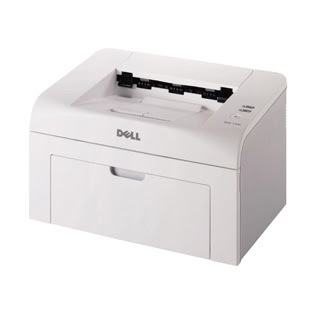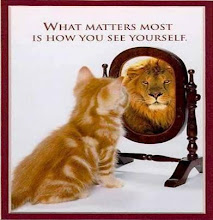

Get this in your mind and keep it there: It is the study method that makes the EXCEPTIONAL STUDENT!!!
 February 22, 2010
February 22, 2010 The Original Quicker Clicker
The Original Quicker Clicker All In One PhotoCopier
All In One PhotoCopier Prepaid Cell
Prepaid Cell Macbook
Macbook MicroSoft Office Suite for MAC
MicroSoft Office Suite for MAC Dell Laser Printer (+1000 copies)
Dell Laser Printer (+1000 copies) Portable Memory Chip
Portable Memory Chip Digital Camera (Lab)
Digital Camera (Lab) Voice Recorder (Lectures)
Voice Recorder (Lectures) Cosmopolitan Knowledge
Cosmopolitan Knowledge http://www.theatlantic.com/culture/
http://www.theatlantic.com/culture/ C Pen 600C Handheld Scanner
C Pen 600C Handheld Scanner MCAT
MCAT Iphone
Iphone Itablet
Itablet Kindle
Kindle Wiki Note Taking
Wiki Note Taking
I used to run this device off my Windows boxes for a couple of years with no problem. Though on the Mac I just couldn’t get it to work. So I had some time today and decided to do a bit more research and figure out how to get this thing pumping again.
From browsing around on the net it also seemed that the Dell 1110 is actually a Samsung ML-2010 just re-branded / white labeled for Dell. The first hurdle was finding out that the device drivers I needed were not actually Dell drivers but Samsung drivers. This brought me to Samsung’s website where I was able to find ML-2010 drivers for OSX.
Installing the Samsung ML-2010 Driver
* note: this solution did NOT fix my problem, though depending on your OSX version this may be the solution that works for you so I’m including in case you want to try it out for yourself.
To try these drivers out I…
Now when you go to System Preferences –> Printers –> Add, during this process when you manually select a print driver choose “ML-2010″ which is the one you just installed and try it out. (* note do NOT choose “Samsung ML-2010″ this is different than the one you just installed, choose “ML-2010″).
So….that solution may work for you as mention though ultimately was NOT the solution that worked for me. The following solution is the one that finally got my 1110 working.
Installing SpliX Drivers
While searching on Google I came across a modified set of Samsung printer drivers to help get these devices working on the Mac called Splix. “This is a Mac OS X package for SpliX, a set of CUPS Printer drivers for SPL (Samsung Printer Language) printers.”
Similar to the same instructions as above…
Now when you go to System Preferences –> Printers –> Add, during this process when you manually select a print driver choose either “Samsung ML-2010, 1.1.0″ or “Samsung ML-2010, SpliX V. 2.0.0″ depending on which version of the SpliX package you installed.
Add the printer and try to print something. Hopefully, you will reach the Voila! moment as I did at this point and you are good to go. If this doesn’t work then I would try the other SpliX driver that you didn’t try the first time or even the Samsung driver itself.
Hope this helps cure a case of frustration for some of you.
 When you apply to medical school, you must submit letters of recommendation from your professors, employers, and/or advisors. If the person writing your letter of rec asks you what to write, be ready with an informed response. Follow these steps to ensure good letters of recommendation that make your medical school application stand out.
When you apply to medical school, you must submit letters of recommendation from your professors, employers, and/or advisors. If the person writing your letter of rec asks you what to write, be ready with an informed response. Follow these steps to ensure good letters of recommendation that make your medical school application stand out.
 Sample Medical School Application Essay
Sample Medical School Application Essay How I Stay Organized
How I Stay Organized Here on Study Hacks we spend a lot of time trying to separate truth from fiction when it comes to building a successful student career. As you know, it’s one of my great beliefs that much of the stress experienced by students is unnecessary. Indeed, the entire Zen Valedictorian Philosophy is premised on the idea that most people have no idea what makes a student impressive.
Here on Study Hacks we spend a lot of time trying to separate truth from fiction when it comes to building a successful student career. As you know, it’s one of my great beliefs that much of the stress experienced by students is unnecessary. Indeed, the entire Zen Valedictorian Philosophy is premised on the idea that most people have no idea what makes a student impressive. Med School Mania
Med School Mania Don’t expect to think up your awe-inspiring project from scratch. Instead, following the program laid out in my activity innovation article: you need to first gain access to the relevant insider world by joining a related club and then paying your dues. This will probably take at least a year. Maybe two. Just keep taking on projects and completing them.
Don’t expect to think up your awe-inspiring project from scratch. Instead, following the program laid out in my activity innovation article: you need to first gain access to the relevant insider world by joining a related club and then paying your dues. This will probably take at least a year. Maybe two. Just keep taking on projects and completing them. Home School Program
Home School Program I read a lot about improving study habits, but I have never come across anything that deals with the emotional aspect. Sometimes when studying I feel despair about whether I can learn the material, other times I feel guilty for putting work off. What are some techniques for taming emotions while studying?
I read a lot about improving study habits, but I have never come across anything that deals with the emotional aspect. Sometimes when studying I feel despair about whether I can learn the material, other times I feel guilty for putting work off. What are some techniques for taming emotions while studying? Last weekend a reader wrote me with a question about studying foreign languages. I realized that this spotlighted a gap in my study tactics arsenal; neither my own experience nor my extensive interviewing of students had touched much on this particular subject matter.
Last weekend a reader wrote me with a question about studying foreign languages. I realized that this spotlighted a gap in my study tactics arsenal; neither my own experience nor my extensive interviewing of students had touched much on this particular subject matter. In her recent book, Mindset, Stanford Psychologist Carol Dweck describes a study that followed a group of college students through a difficult pre-med chemistry course. As is common with pre-med courses, most of the students did poorly on the first exam. The real division occurred after those first low grades were returned. Some students got spooked. They assumed the low grade indicated lack of ability. As the semester continued they compensated by increasing their study hours, but not changing how they studied. Their resentment for the subject grew. Their grades, alas, did not.
In her recent book, Mindset, Stanford Psychologist Carol Dweck describes a study that followed a group of college students through a difficult pre-med chemistry course. As is common with pre-med courses, most of the students did poorly on the first exam. The real division occurred after those first low grades were returned. Some students got spooked. They assumed the low grade indicated lack of ability. As the semester continued they compensated by increasing their study hours, but not changing how they studied. Their resentment for the subject grew. Their grades, alas, did not. Here’s a non-controversial statement: Rhodes Scholars are pretty damn impressive. Take, for example, Benjamin. I drew his name at random from the 2008 winners of the scholarship. According to the official press release:
Here’s a non-controversial statement: Rhodes Scholars are pretty damn impressive. Take, for example, Benjamin. I drew his name at random from the 2008 winners of the scholarship. According to the official press release: If you look past the big-”c” Conclusions of this study, you’ll find a tactical gem buried in the narrative — a piece of study advice I’ve been promoting for years: the best guide for how to study for a class is the first exam.
If you look past the big-”c” Conclusions of this study, you’ll find a tactical gem buried in the narrative — a piece of study advice I’ve been promoting for years: the best guide for how to study for a class is the first exam. I signed with my literary agent at the age of twenty. At twenty-one I signed my first book deal with Random House. The next year, I signed my second deal. Neither titles became New York Times Bestsellers, and I’m yet to appear on Oprah, but beyond these two exceptions I have, more or less, lived out all of the standard writer daydreams that first led me down this path. Among other things:
I signed with my literary agent at the age of twenty. At twenty-one I signed my first book deal with Random House. The next year, I signed my second deal. Neither titles became New York Times Bestsellers, and I’m yet to appear on Oprah, but beyond these two exceptions I have, more or less, lived out all of the standard writer daydreams that first led me down this path. Among other things: I want to know about your studying strategies, beyond just quiz and recall. While I do find the quiz and recall method to be VERY helpful it doesn’t offer much structure in comparison with say the SQ4R or 4S=M methods. Is there a way to reconcile these methods with your quiz and recall method? Perhaps you can describe your blow by blow study sessions including what you do with the notes you take in class.
I want to know about your studying strategies, beyond just quiz and recall. While I do find the quiz and recall method to be VERY helpful it doesn’t offer much structure in comparison with say the SQ4R or 4S=M methods. Is there a way to reconcile these methods with your quiz and recall method? Perhaps you can describe your blow by blow study sessions including what you do with the notes you take in class.




